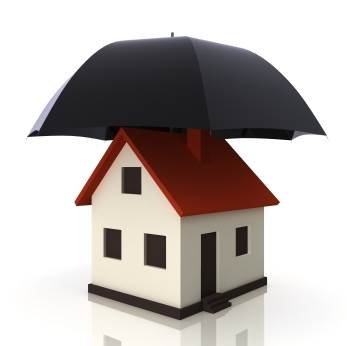
Reading Time: minutes
Most Filipinos buy home insurance just because it is required, often by mortgage lenders. And sadly, a lot of these owners of condo units and houses do not know the full details about their policy: what their coverage options are, what events or situations are covered and not covered, what type of policy they purchased, and more. Some of them also do not know the advantages and disadvantages of various home or building insurance packages in the Philippines, so they are unable to get the best available coverage that suits their needs.
The good news is that it's not yet too late for you to learn more about your home insurance policy to gauge if you still need to purchase other policies to supplement your needs. We've prepared a set of questions to ask your existing or new insurance broker to help you understand why you need home insurance and what type of policy you signed up for (or should sign up for):
1. What is the purpose of paying for home insurance?
More than being a requirement by mortgage lenders, home insurance is necessary to protect you from suffering financial misfortune in case your owned residential property (house, apartment, townhouse, condo) gets damaged due to unforeseen factors. The policy will pay for damage to your property and your possessions in case there's storm, fire, theft, vandalism, etc. This means that you won't have to carry the financial burden in case anything happens to your house.
2. What type of insurance policy do I have and what does it cover?
It is important to know and understand what your policy covers and what benefits it offers to ensure you get the maximum protection you're paying for. Although they generally provide financial and property protection, house or condo insurance policies come in different forms and coverages, which is why you need to have your broker explain to you the features of your policy.
Basic home insurance covers properties as well as belongings (except money and jewelry) in case they get damaged only by fire and lightning. This includes the house's structure, plumbing, electrical wiring, central air and heat systems, sheds, fences, etc.
Extended insurance, on the other hand, provides coverage for damages caused by other man-made or natural calamities such as:
- Earthquake
- Volcanic eruptions
- Tidal waves
- Flood
- Landslides
- Explosions
- Storm/Typhoon
- Vehicular impact
- Falling aircraft
There are also policies that include personal liability insurance, which pays for expenses due to lawsuit from someone who gets injured on your property and expenses due to loss of use, such as the rent for a hotel room while your home is being repaired.
3. Which events are not covered by the insurance policy?
Policies have exclusions; and as mentioned earlier, basic insurance provide less coverage compared to extended insurance. If you are about to purchase one, find out what the exclusions of your policy are before you decide to commit. And if you already have one, read the policy carefully to find out if you still need to purchase supplemental coverage (i.e. If you live in a flood-prone area, make sure your insurance covers flooding. If not, then you might have to purchase one.)
4. How much is the property covered for?
Just because the insurance policy includes a 7-digit amount of coverage does not mean that it would be enough to cover your needs. This is why you have to ask how much the coverage is to see if it would be sufficient in covering the actual value of your properties. You can also gauge if it is worth it and if you can afford it, as policy premiums also increase together with the amount of coverage. Ideally, you should compute the cost of rebuilding and redesigning your home in the future together with your personal belongings in case your home gets damaged or destroyed and purchase enough insurance to cover this amount.
You can opt to purchase the "actual cash value" amount, which is equivalent to the value of our property at the time it was destroyed, minus depreciation. Other options would be "replacement cost" option, which does not factor depreciation in computing the coverage's value or the "extended value" option, which can give you up to 20-30% more than your policy limit.
5. How long has the insurance provider been in the industry and what is its track record in service?
Perhaps the most important consideration to make when purchasing any form of insurance is the reliability and experience of the insurance provider. Unfortunately, several Filipinos have fallen victim to fraudulent companies who promise financial protection, yet in the end were unable to deliver the compensation stipulated in the contract. This is why it is important to perform your own research about the track record, history, and stability of the company offering you an insurance policy. You can also visit the site of the Insurance Commission to find out which companies are licensed to offer insurance products.
You should also ask about steps involved in filing claims, timeline involved in approval of these claims, etc. Customer service is also an important factor to consider when buying a home insurance.
Do you have questions and comments about this article? Contact Angela Manese, KMC's Residential Sales and Leasing Executive today!
Photo courtesy of: http://www.thetinylife.com

